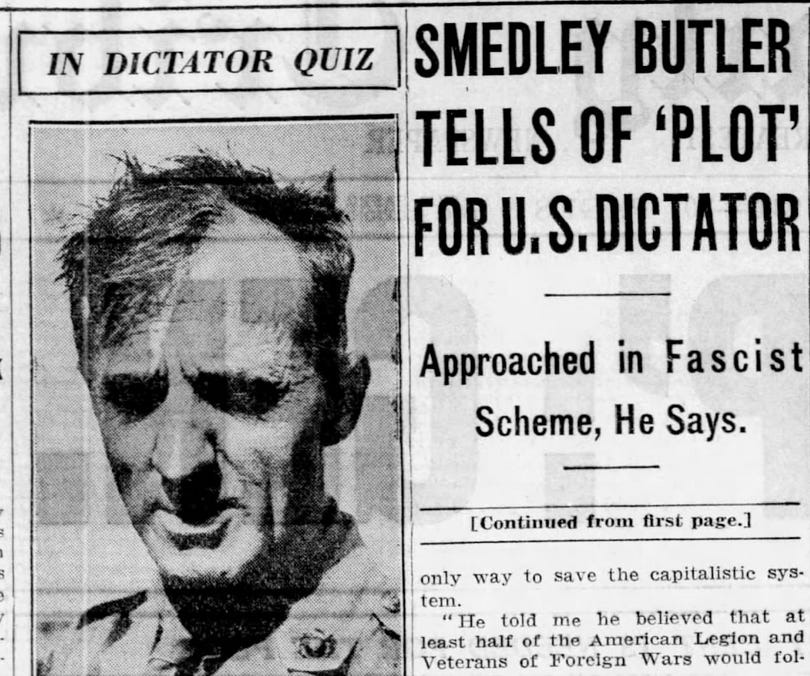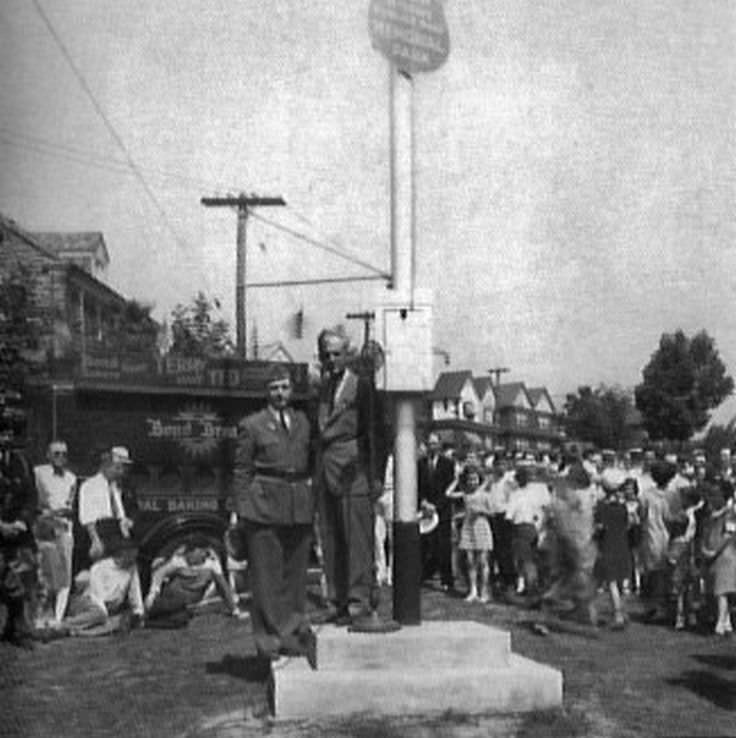
Butler Brigade”, and he is featured in the documentary The Corporation. The Boston, Massachusetts chapter of Veterans For Peace is named the “Smedley D. Smedley Butler died in 1940, but his presence is still very much alive. However, an internal report to Congress from HUAC confirmed the veracity of the plot. Butler’s assertions were not aggressively pursued, and the matter was largely dismissed. He went along, gathering intelligence about the plot, and took it to Congress.

He had been recruited by a group of wealthy Pro-Fascists who had hoped to use him in a coup against President Franklin D. In 1934, Butler went before the House Un-American Activities Committee (HUAC) to expose a conspiracy against the government. He spoke frankly and honestly about his experiences and opinions, and was very popular with the American public. Though he faced criticism, Butler was steadfast in his beliefs about war, US imperialism, and a growing Pro-Fascist movement.
#General smedley butler coup series
War is a Racket grew out of a series of speeches Butler gave to whatever group wanted to hear his views. Now that I see the international war clouds gathering, as they are today, I must face it and speak out.” Shattered minds…For a great many years, as a soldier, I had a suspicion that war was a racket not until I retired to civil life did I fully realize it. And what is this bill? …Newly placed gravestones. At least 21,000 new millionaires and billionaires were made in the United States during the World War….How many of these war millionaires shouldered a rifle?….The general public shoulders the bill. In a booklet titled War is a Racket, Butler wrote, “In the World War a mere handful garnered the profits of the conflict. He thought of himself as a cog in the imperialist war machine. Marine Corps Major General Smedley Butler, nicknamed 'Maverick Marine', who saw action in Honduras in 1903, served in Nicaragua enforcing American policy from 1909 to 1912, was awarded the Medal of Honor for his role in Veracruz in 1914, and a second. He had come to believe that war–in particular WWI–was really a profitable business for the few and at the expense of thousands of lives. Smedley Butler Perhaps the single most active military officer in the Banana Wars was U.S. By then, he was beginning to question US involvement in foreign conflicts. Because of his rank, he was able to write his own reprimand and never apologized to Mussolini.īutler retired from the military in 1931. He was punished for telling an unfavorable story about Mussolini, avoided court-martial by accepting a reprimand. Prior to World War II, Butler spoke out against what he saw as admiration for Fascism and for Italy´s leader Benito Mussolini. He rose quickly through the ranks to become, at age 48, one of the youngest major generals. Butler was known for his leadership and commitment to the welfare of the men under his command.

He served in Honduras, Nicaragua, Mexico and Haiti (earning his Medals of Honor in Mexico and Haiti).

Raised by prominent Quaker parents, Smedley Butler defied his pacifist lineage by joining the Marines just before his 17th birthday. He had also become an unrelenting voice against the business of war. He cared little for Roosevelt's political leanings, but thought he might make a good president, presumably based on his 1932 campaign platform.At the time of his death, Major General Smedley Darlington Butler, also known as “The Fighting Quaker”, was the most decorated Marine in US history he was the only person to be awarded a Marine Corps Brevet Medal and a Medal of Honor for two separate military actions. According to the book " Maverick Marine," Butler allied himself with Franklin Roosevelt's campaign to depose Hoover. First, the men in 1918 had been considered heroes, while now, when they were an inconvenience, they were "tramps." He had spoken before the Bonus Army urging it not to give up until the Congress paid what was owed. Instead, the president violently dispersed the mob, which was referred to as a collection of "tramps" after rumors that communist infiltrators had worked their way into the crowd.Īccording to NPR, Butler was enraged, and rightly so. When Congress finally pushed a bill through to pay the bonuses and disperse the "Bonus Army," Hoover vetoed it. veterans camped out in Washington, D.C., in protest, demanding the money they had earned through risking their lives on Europe's battlefields. government promise to pay bonuses to World War I veterans was still unpaid by 1932. According to the National Park Service, a 1924 U.S.


 0 kommentar(er)
0 kommentar(er)
